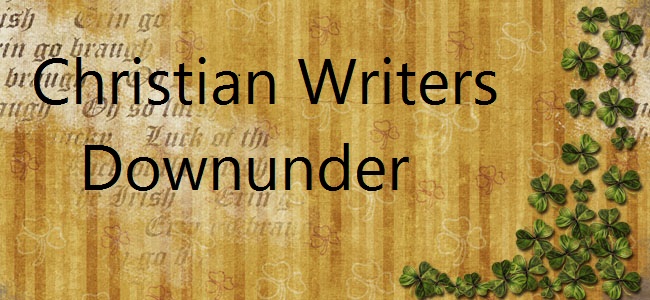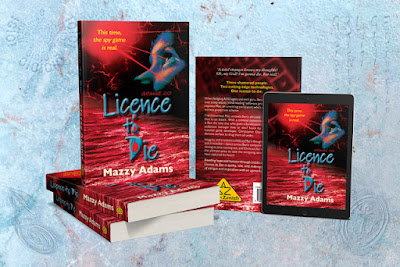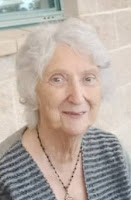 |
| Photo by SIphotography from Deposit Photos |
When I was a relatively new Christian, one of my favourite books was Meeting God at Every Turn, by Catherine Marshall. This book is the author’s very personal account of how God met her at every major turning point in her life. Every time something was confusing, troubling, heart-wrenching, or scary, God met Catherine with his incredible grace—even when her husband, renowned preacher, Rev Peter Marshall, died. The book had a profound effect on me at the time and encouraged me to trust God as I followed him in life and ministry.
But… It turns out I’m not great at trusting. I forget sometimes… God has always been there for me but nearly all the big mistakes I’ve made in my life come from my failure to trust him. Is that the case with you?
As writers, we love creating ‘plot twists’ in our stories, but we don’t like the plot twists life throws at us. When hard, horrible, or crazy stuff happens, do we believe God will help and strengthen us, or do we get in a flap like the hens in the Chicken Run film?
I confess I’m often like those hens. I tell myself not to panic, then I panic. But I’d like to share something that happened last year—something that reminds me of God’s faithfulness and my own struggle to trust.
I’d been unemployed for a while and our finances were low. I was plodding along working on my writing and doing a little editing. I was trying to polish and publish my YA book, Running Scared, work on my website, and write the first book of a series (new genre). But I kept on thinking I had to do more to earn a living!
I tried. I made enquiries about work, but no doors opened. I couldn’t do veterinary work because of my bad back. My home business wasn’t earning much. My foray into NDIS support (and art teaching) had ended when my client’s funding was slashed.
And our funds were bottoming out.
A wise response to this would have been to trust God and rest in him. It would have been to focus on writing and thank him for every spare moment he’d given me to focus on my creative call. I could have trusted he had everything under control, rather than letting worry pull me away from this call.
I still wrote and was creative, but I would have been a lot more productive if I had just TRUSTED.
Because something happened.
Late November last year God spoke in that still small voice while I was praying. He said, ‘Why are you praying for provision when my word says I will give that to you. Pray instead that you can write your book.’
I thought it was a strange thing for God to say, until three weeks later, he gave me a job. For some reason—and for some time—I’d been thinking a lot about copywriting. While I love writing fiction, I also love how words—in short form—have power to encourage and compel. I took a short copywriting course which helped me write the copy for my website, and I began exploring what it would mean to work in this area.
Then, suddenly, I had a copywriting job. Not just any copywriting job, but one at marketing company with a Christian ethos. One that used both my writing skills and my background ministry training and experience. I was thrown in the deep end while everyone else had their Christmas holidays but somehow, I didn’t drown. Probably because I have the loveliest line-manager (you know who you are 😊).
It was hugely tough. I’d been used to working to my own rhythm but now I had to work to other people’s timetable in a shared corporate space. It was overwhelming and my body wasn’t used to me doing that level of work. It still rebels some days. But I’ve gradually learned to swim.
Thing is, I’ve found it really, really, really hard to do any of my own writing.
Guess what I’m praying for 😁.
Feel free to pray too, if you like...
Through his word to me last November, the Lord showed me he still values my fiction writing. It’s worth fighting for. It’s worth me persevering even if it takes me all year to finish a first draft. I’m believing this.
I look back at the time and space I had to write last year, and I groan at the energy I gave to worry.
There have been more plot twists since then—some affecting the day-to-day of life, health and work—others potentially affecting the bigger picture. The truth is, there will always be plot twists, but the author and perfecter of our faith says he will work all things to our good. Even the hard and crappy stuff.
The best encouragement I can bring today is to say if you are facing any plot twists in your life, delve deep into what God says in his word about these things, and believe it.
Don't believe your own fears or the fears of other people. Write out the relevant verses and trust they are true. Bad stuff can happen, challenges can occur, health can fail, but Jesus is faithful, and he doesn’t give up on us.
He doesn’t give up on our writing, either. He’s really into creating things 😃.
 |
| Image by beate bachmann from Pixabay |
Don’t waste energy on worry. God’s word is true. Worry doesn’t accomplish anything. Instead, give everything to him and do what you can.
Trust him and let him surprise you!
And when he does come through for you, please tell us all about it so we can be encouraged too.
Has God ever met you during a plot twist in your life? What did he do? Let us know in the comments 😊.
Bible verses to ponder:
Visit Susan at www.susanjbruce.com.





















